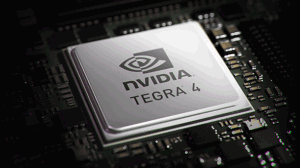2012 was not a good year for NVIDIA Corporation (NASDAQ:NVDA), as the stock was down in double-digits and failed to live up to the expectations of many. However, it seems that the company is realizing its potential this year and the much-awaited breakout is finally here as shares are up almost 20% year-to-date.
NVIDIA’s momentum received a shot in the arm after the company released first-quarter results last week as its estimate topping performance in the quarter led to a 4.5% jump in the share price. Its results were driven by solid sales of its gaming GPUs as revenue from the segment was up 24% from the prior-year period.
This is certainly impressive, but it’s also quite surprising to see that a company which was looking to transition away from PCs into mobile is falling back upon its traditional business of selling discrete GPUs to drive its top line higher.

A tough game ahead
My first graphics card was undoubtedly from NVIDIA which I’d purchased to play high-end games. However, when I purchased my next machine (after a gap of four years), I didn’t feel the need for a separate GPU as Intel Corporation (NASDAQ:INTC)’s on-board graphics processor was sufficient enough, even though it isn’t as good as an NVIDIA Corporation (NASDAQ:NVDA) discrete GPU.
However, Intel is getting serious about graphics performance and its next generation Haswell processors are expected to provide tough competition to NVIDIA. Intel is expected to announce its Haswell processors next month and the tremendous graphic boost that Chipzilla is expected to provide with the new processors would probably take a chunk out of NVIDIA’s market.
The presence of a powerful GPU from Intel would probably eliminate the need for a discrete graphics processor, especially for Ultrabooks and laptops, hurting NVIDIA Corporation (NASDAQ:NVDA) in the process.
I agree that serious, professional gamers might still go for something like the NVIDIA GeForce GTX Titan, which costs a cool $1,000, but I fear that they aren’t present in very large numbers to make a great impact on the company’s sales. Moreover, with casual games starting to make their presence felt in a big way, the very concept of hardcore gaming might change as mobile devices become more potent by the day.
However, NVIDIA Corporation (NASDAQ:NVDA)’s position in supercomputers and workstations is still better-off, but if Intel Corporation (NASDAQ:INTC) decides to make an entry into this space, then things would get interesting here as well.
In addition, it’s quite well-known that consumers put off their purchases of a product when a newer version is about to arrive in the market. Same goes for the likes of the Sony Corporation (ADR) (NYSE:SNE) PlayStation 3 and Microsoft Corporation (NASDAQ:MSFT)’s Xbox 360. With these two highly-anticipated consoles slated for a release later this year, NVIDIA might witness a slowdown in sales of its GeForce GPUs as consumers reserve their dollars for these new consoles.
What’s up with Tegra?
To mitigate falling sales of PCs, NVIDIA Corporation (NASDAQ:NVDA) moved into the market for mobile processors, but its efforts in this market haven’t led to positive results. Revenue from Tegra went down 22% from the year-ago period and this isn’t at all surprising for me as NVIDIA’s mobile segment was always under siege.
NVIDIA has been left far behind in this market by QUALCOMM, Inc. (NASDAQ:QCOM), and the maker of the famed Snapdragons has probably taken away Tegra’s marquee device. NVIDIA was very proud of the fact that it had supplied the processor for the Google Inc (NASDAQ:GOOG) Nexus 7 and HTC One X last year. But HTC switched to a Qualcomm processor for its well-reviewed HTC One this year and Google has probably switched camps as well.

